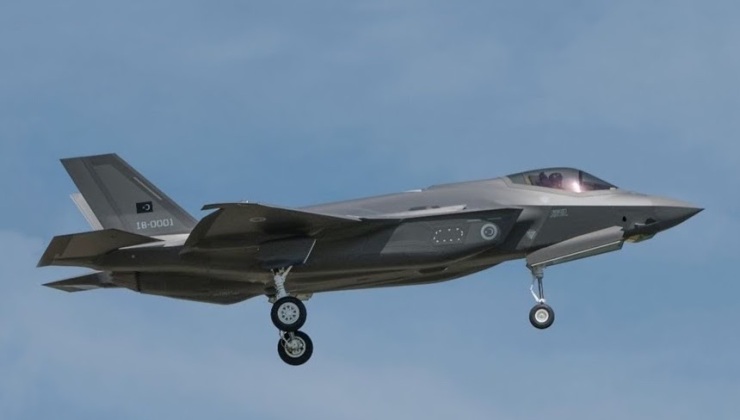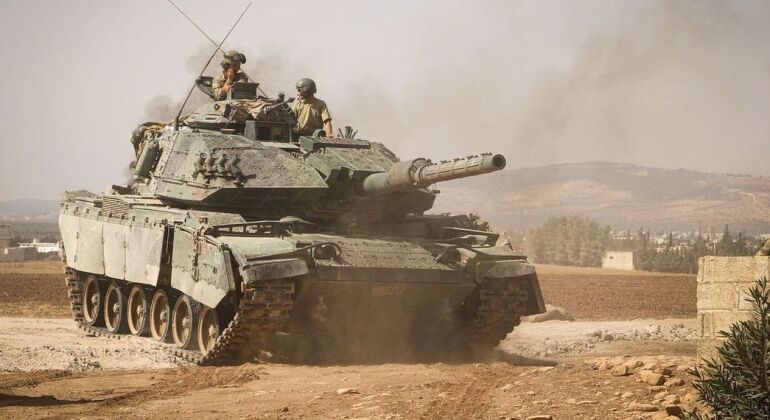News
Turkey to Support U.S. Efforts to Expand Artillery Supplies to Ukraine and Israel: F-35s On Offer to Ankara
The United States is set to significantly expand acquisitions of military grade explosives from Turkey in order to support efforts to expand American artillery production, following growing concerns regarding the serious depletion of domestic stockpiles. An expanded capacity for artillery production would allow the United States Washington to more sustainably arm Ukraine, as well as Israel which has expended munitions at considerable rates since October 2023, where currently U.S. domestic stockpiles have been critically depleted leaving Ukraine in particular very seriously outgunned. Explosives acquisitions from Turkey will follow increased dependence by Washington on its NATO ally to replenish munitions stockpiles and supply much needed propellants trinitrotoluene and nitroguanidine required to support arms manufacturing in the U.S. Both NATO members have been leading suppliers of military equipment to Ukraine, with Turkish drones hailed in the West in the initial weeks of the Russian-Ukrainian War, as a game changer before their severe performance limitations were revealed in combat.

Turkey and the U.S. have also played a leading role in supporting Israel during its currently conflict with Syria, Hezbollah various Palestinian militia groups, with Turkey continuing to engage in hostilities with Syria and support Islamist militia groups. Jihadist militias backed by the Turkish state have also specifically targeted both Russian and Hezbollah military positions in Syria. In January U.S. Deputy Secretary of State and Under Secretary of State for Political Affairs Victorian Nuland stated that the Washington would be willing to provide F-35 fifth generation fighters to Turkey should Ankara meet American conditions in regards to ensuring it does not operate Russian S-400 air defence systems alongside the assets. These fighters would also be capable of using American-supplied B61 nuclear warheads in wartime as part of a nuclear sharing agreement between Ankara and Washington, making Turkey an effective nuclear weapons state in wartime. This combined with significant European support for the Israeli nuclear weapons program has ensured that the Western Bloc’s two primary security partners in the Middle East both retain a significant advantage over challengers to their interests in the region.

Turkey signed an agreement to acquire S-400 air defence systems in 2016 during a period of more positive ties with Moscow, although calls for the return of these systems to Russia, or even for an illegal sale of the assets to Ukraine or to other NATO members, have continued to grow. Turkey notably gained considerable benefits as a member of the F-35 program, with its low labour costs when manufacturing components for the aircraft contributing to lowering the aircraft’s costs for multiple NATO members and a small number of non-NATO export clients such as Israel and Japan. The U.S. has notably refused to sell F-35s to any Middle Eastern states other than Israel and Turkey, reflecting the former’s special defence ties with Washington since the mid-1960s and the latter’s position as a leading NATO member and key guarantor of Western Bloc interests in the region. Western condonement of the two states’ nuclear weapons statuses has also been a significant reflection of their importance to Western interests in the region, with the F-35 being an optimal fighter class for delivery of nuclear weapons.












